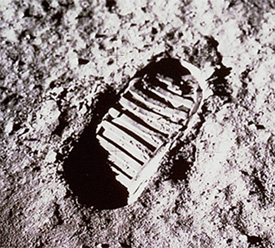First-Hand:John Jacobs Apollo Experience

Submitted by John F. Jacobs
- B.S., Electrical Engineering, University of Waterloo, 1968
- M.B.A., Management, Loyola University, 1980
Professional Affiliations:
- Life Senior Member, IEEE
- Secretary/Treasurer Baltimore Section, IEEE
- Communications Society, 1986 to 1988
Background
I was born in England during WWII and lived near London. I watched B29s fly over our house and never thought that one day I would be an aerospace engineer working for an American company. I was two at the time and remember being placed under the dining room table for protection during air raid warnings. My family immigrated to Canada in the mid 1950s and I attended high school and college there.
I moved to the USA after graduation and my first job was with the Bendix Field Engineering Corporation who had a contract for the maintenance and operation of the NASA Field site in Bermuda. I worked on the Spacecraft Communications and Range Safety Command systems in Bermuda from 1968-1974 supporting the Apollo moon landing and Skylab missions.
In those days we had no electronic calculators, no digital watches, and no solid state memory. Instead, we used slide rules and magnetic core memory to go to the Moon.
Apollo job experience
During the Apollo launch phase, voice communication with the Astronauts originated from Mission Control in Houston, TX and was sent by telephone lines to the Bermuda Tracking Station. Voice was then transmitted to the Spacecraft via Unified S-Band or UHF radio frequencies. I maintained and operated the Communications Console that selected the voice path through the S-Band or UHF equipment and I maintained the UHF transmitters and receivers. I was also responsible for the maintenance of a microwave system that carried the voice circuits from an undersea cable operator to the NASA Tracking Station. It should be noted that in the Apollo era, we did not have separate operators and maintainers so we did both jobs.
In addition, I maintained the UHF transmitting equipment that was used to send range safety commands to the booster rocket during the Apollo launch phase. The range safety system could command the booster to self destruct in the event of a failure during launch that might cause the booster to impact on populated areas of Africa. This never happened so a “Safe” command to disable the Range Safety receiver in the Booster was sent from Bermuda once Earth orbit was achieved. The operator for this system was always a USAF officer sent to Bermuda for launch support.
The voice transmitters and receivers were about 100 W 296.8Mhz AM prime Apollo frequency and were made by Motorola. They were a modified version of the Presidential limo radio.
The range safety system used a 450Mhz 600W FM exciter that was the input to a 10KW power amplifier. There were two exciters and two PA's. I believe they were made by Collins (Rockwell Collins was a multinational corporation company headquartered in Cedar Rapids, Iowa providing avionics and information technology systems and services to government agencies and aircraft manufacturers. The company was merged with UTC Aerospace Systems on November 27, 2018, and now operates as part of Collins Aerospace). The Digital Range Safety Command System modulator was based on an old computer made by General Mills (the breakfast cereal maker). The command codes sent to the spacecraft were determined by code cards plugged in to the modulator prior to each mission.
The following stories highlight some of the more interesting incidents that happened during my Bermuda assignment.
On one occasion the Safe command was not received properly and the spacecraft had to make an Earth orbit with the receiver active until it could be “safed” from the Cape Kennedy range safety command system. The Astronauts were not happy about this.
Once during a launch, a can of Coke was spilled on the Bermuda operations manager’s console and this resulted in an Apollo launch delay while the console pushbutton switches were dried off. Setting drinks on the console was banned after that episode.
During the Apollo era, there was a TV commercial that showed a box of detergent being held up by a hand coming out of a washing machine. I had a conversation with an old Bermudian who insisted that the Moon landing never happened and was faked just like the TV commercial that he had seen.
My fiancée and I postponed our wedding date twice because of an Apollo launch slip.
Last but not least, concerns the NASA Bermuda telephone receptionist who had to leave her switchboard unanswered when she needed a break. The station manager did not want incoming calls to go unanswered so her supervisor decided that the best solution was for her to forward incoming calls to a wall mounted telephone that was installed next to the ladies toilet. Of course, several things then happened:
- The obligatory photo of a telephone technician holding the phone while seated on the toilet appeared on the bulletin board the next day,
- The sound of a toilet flushing was heard over the site PA system,
- The telephone would mysteriously ring whenever the operator took a break,
- The station manager ordered the phone to be removed immediately, and finally,
- She never did answer that phone and the telephone technician who was on the bulletin board was told to operate the switchboard when she took breaks.



